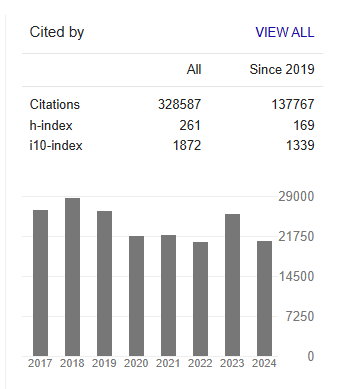A Summarized Report on Relationships of Six Disease Risks and Four Lifestyle Details, Including Food Portion, Food Quality, Walking Steps, and Sleep Scores Using Viscoplastic Energy Model of GH- Method: Math-Physical Medicine (No. 972, VMT #371, 11/26/2023)
Abstract
Gerald C Hsu
The CDC reports that nearly 1 in 5 cancer patients also has diabetes, complicating the management of both conditions, particularly in dietary choices. A study in 2021 found around 30% of US coronary artery disease patients and BMC Public Health notes 14–46% (averaged 30%) of UK stroke patients have diabetes. Diabetes is linked to chronic kidney disease (CKD) in over 40% and is believed to affect up to 81% of those with Alzheimer's. Additionally, 50% to 80% (averaged 65%) of Parkinson's disease patients may have diabetes, and diabetic neuropathy affects up to 50% of patients with type 1 or type 2 diabetes, according to PubMed.
This particular research paper suggested strong correlations (73% to 96%) existed between lifestyle factors of diet, exercise, and sleep with six various disease risks.
Analyzing data from 5/1/2018 to 11/20/2023, the author summarizes findings from six papers on cardiovascular diseases, strokes (CVD), chronic kidney diseases (CKD), cancers, Alzheimer’s disease (AD), Parkinson’s disease (PD), and diabetic neuropathy (DN).
In summary, traditional statistical analysis reveals the following averaged correlations between 4 lifestyle details and 6 disease risks:
- Diseases vs. Food Portion: 90%
- Diseases vs. Food Quality: 96%
- Diseases vs. Walking Steps: 73%
- Diseases vs. Sleep Scores: 90%
A 20% lower correlation between diseases and exercise steps is attributed to the "bowl" shape of the exercise curve. The author's walking steps increased from 7.5k (116%) in 2013 to 18.5k (60%) in 2018, then decreased to 12.7k (86%) in 2023 due to aging discomfort. Note that normalized exercise percentages are reversed from measured walking steps.
The space-domain viscoplastic medicine energy (SD-VMT) method uncovers hidden relationships and dynamics (i.e. energies) between 4 lifestyle details and 6 disease risks. The averaged energy contribution margins on disease risks from lifestyle details are:
- Energy from Food Portion: 31%
- Energy from Food Quality: 21%
- Energy from Walking Steps: 25%
- Energy from Sleep Scores: 23%



